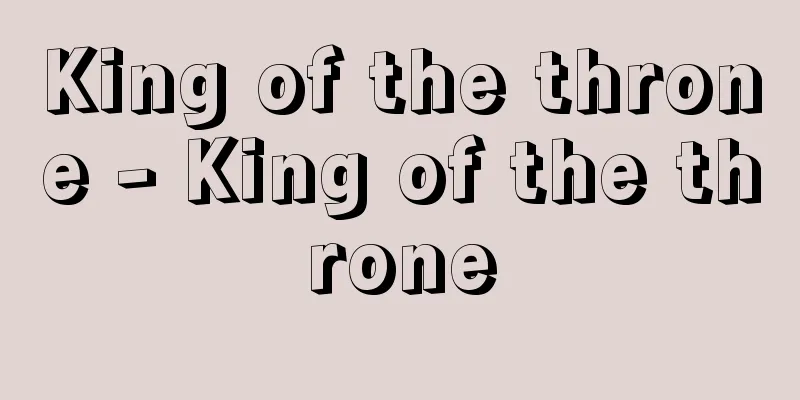Reverse - Sakau

[1] (Self-Ha 4) ① To turn one's back on someone. To rebel. To oppose. ※Mahavairocana Sutra Gishaku Enkyu Johoten (1074), 13 "Because he was obsessed with his actions, he turned away and developed a rebellious attitude." ② To be hostile. To confront. Also, to move in the opposite direction to the force of wind and waves. ※Kokin Chomonshu (1254), 10 "Thinking that he should turn back once more, he set out." ③ To turn upside down. To become the opposite. Also, to turn upside down. ※Kaido-ki (c. 1223), from Ikeda Kikukawa "A wind blew throughout the world, and the waves in the sea turned back." ④ To vomit. To throw up. ⑤ To be annoyed. To feel bad. To feel resistance. ※Tsurezuregusa (around 1331) 155 "The evil deeds that follow are heard by people and troubled in their hearts." [2] [Original Ha, lower 2] Same as (1). ※Uchikishu (around 1134) Xuanzang Tripitaka Notes on the Heart Sutra "My stomach turns over and my heart is filled with sorrow." [3] [Other Ha, lower 2] To turn upside down. To make something stand upside down. To make something stand upside down. ※Hokke Gisho Choho 4th Year Part (1002) 1 "The scales of my body turn upside down , and sometimes earth and stones get into my body." [Essay] Until the Heian period, examples of both the yodan and shimo nidan were found, mainly in documents that read Chinese classics in Japanese. In the Middle Ages, although they were used together with the shimo nidan conjugation, the yodan conjugation came to be generally used, and the shimo nidan conjugation is thought to have been associated with a stiff feeling of language. In addition, examples of the synonym "sakarafu" can be found from the Muromachi period.Gyaku [reverse]Sakara/ Usakarafu [Reverse]Mukata-ta/mu [reverse]Sakarai Sakarahi [reverse]Sakaru [reverse]Source: The Selected Edition of the Japanese Language Dictionary About the Selected Edition of the Japanese Language Dictionary Information |
[1] 〘自ハ四〙① 相手に背を向ける。そむく。さからう。※大日経義釈延久承保点(1074)一三「所行の事に著せるを以て、反りて背忤(サカフ)の心を生す」② 敵対する。はむかう。また、風波などの勢いと反対の方に進もうとする。※古今著聞集(1254)一〇「今一度さかうべしとて、あゆみよるに」③ さかさまになる。逆になる。また、さかまく。※海道記(1223頃)池田より菊川「天下風あれて海内波さかへりき」④ へどを吐く。もどす。⑤ 気にさわる。悪く感じる。抵抗感がある。※徒然草(1331頃)一五五「ついで悪しき事は、人の耳にもさかひ、心にもたがひて」[2] 〘自ハ下二〙 (一)に同じ。※打聞集(1134頃)玄奘三蔵心経事「すふ間腹わた返て逆(サカフ)れども悲の心深きままに」[3] 〘他ハ下二〙 さかさまにする。さかだたせる。さかだてる。※法華義疏長保四年点(1002)一「身に鱗を逆(サカヘ)て、土石其の身の内に入ることあり」[語誌]平安時代までは、漢文訓読系の文献を中心に四段・下二段とも例が見られる。中世に入って、下二段活用と併用されつつも、一般的には四段活用が用いられるようになり、下二段活用の方は堅苦しい語感を伴ったと考えられる。なお、同義語の「さからふ」は、室町期より例が見出される。
ぎゃく【逆】さから・う さからふ【逆】むか‐た・む【逆】さからい さからひ【逆】さか・る【逆】出典 精選版 日本国語大辞典精選版 日本国語大辞典について 情報 |
Recommend
Galatia - Galatea (English spelling)
A region in ancient Anatolia (present-day Turkey)...
Isshukin
A square gold coin from the Edo period. It is wort...
Shaw, CH (English spelling)
…In France, on the other hand, the pneumatic rock...
Saung (English spelling)
A Burmese (now Myanmar) bow-shaped harp. An abbrev...
Six Boundaries - Rokkyo
〘Noun〙 A Buddhist term. The six consciousnesses (r...
Kiyomi
The former name of a village (Kiyomi Village) in ...
Jungle cat - Jungle cat (English spelling)
It is a member of the order Carnivora and family ...
Anemone flaccida (English spelling) Anemoneflaccida
…[Michio Tamura]. … *Some of the terminology that...
Yohei Aburaya - Aburaya Yohei
A title for Kabuki and Joruri. Premiere November 1...
Caroline - Caroline apple
...The inhabitants are undoubtedly immigrants fro...
Hematocele
... refers to a condition in which blood accumula...
Proof - proof
In mathematics, a proof involves stating several p...
Kinetosis
...A transient syndrome accompanied by dizziness,...
Arch thrust - Arch thrust
…The members that support both ends of an arch ar...
Sanhaja (English spelling)
...The exact number of Berber speakers today is u...



![Aidos [mountain] - Aidos](/upload/images/67cf1737dbd27.webp)





